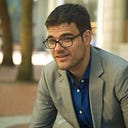I hear you there and I’m a fan of critical economic and class theory but I do wonder if the model doesn’t miss part of the point.
Yes, people are oppressed, and yes even the oppressors themselves seem to suffer at some point but at the end of the day I think we can, and people do, just play.
Have you read Zora Hurston’s “their eyes were watching God?” It has fantastic examples of oppressed people finding ways to play. So do her collections of oral traditions from the South and Hati.
My friend just got back from living with the Masi warriors and the cultural piece that threw her off her the jokesters telling absolutely wild “long tales.”
I grew up poor (US poor that is) in California with plenty of other poor friends but there were still people who played, people who have fun.
I guess what I’m trying to say is that I don’t think play has much to do with the economy or poverty. Yes, only facing the truth will help change the oppression in the world but play can happen with or without oppression.
It needn’t be simply escapism, it is a person, a soul if you will enjoying itself.
